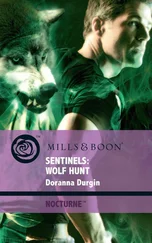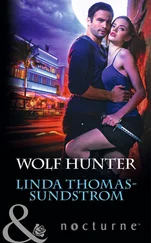Armand Cabasson - Wolf Hunt
Здесь есть возможность читать онлайн «Armand Cabasson - Wolf Hunt» весь текст электронной книги совершенно бесплатно (целиком полную версию без сокращений). В некоторых случаях можно слушать аудио, скачать через торрент в формате fb2 и присутствует краткое содержание. Год выпуска: 2012, Издательство: Gallic Books, Жанр: Старинная литература, на английском языке. Описание произведения, (предисловие) а так же отзывы посетителей доступны на портале библиотеки ЛибКат.
- Название:Wolf Hunt
- Автор:
- Издательство:Gallic Books
- Жанр:
- Год:2012
- ISBN:нет данных
- Рейтинг книги:5 / 5. Голосов: 1
-
Избранное:Добавить в избранное
- Отзывы:
-
Ваша оценка:
- 100
- 1
- 2
- 3
- 4
- 5
Wolf Hunt: краткое содержание, описание и аннотация
Предлагаем к чтению аннотацию, описание, краткое содержание или предисловие (зависит от того, что написал сам автор книги «Wolf Hunt»). Если вы не нашли необходимую информацию о книге — напишите в комментариях, мы постараемся отыскать её.
Wolf Hunt — читать онлайн бесплатно полную книгу (весь текст) целиком
Ниже представлен текст книги, разбитый по страницам. Система сохранения места последней прочитанной страницы, позволяет с удобством читать онлайн бесплатно книгу «Wolf Hunt», без необходимости каждый раз заново искать на чём Вы остановились. Поставьте закладку, и сможете в любой момент перейти на страницу, на которой закончили чтение.
Интервал:
Закладка:
The majority of Massena’s corps therefore formed into a column.
Then the superior officers ordered, ‘Column, head left.’ This enormous formation of twenty thousand men began to march south-westwards. The new recruits were worried.
Margont was at the head of his company, sword in hand.
‘Where are we going?’ wondered Saber aloud. ‘And if we leave, who will make up the north of the left wing?’
In the ranks, the infantry exchanged appalled looks or questioned the non-commissioned officers.
‘Are we retreating, Sergeant?’ a conscript asked Lefine.
‘Everything’s all right! Everything’s going to plan,’ Lefine assured him.
An Austrian battery thundered in the south, near the Danube. ‘We’re encircled!’ yelled a fusilier.
‘The little Corsican is defeated!’ another one yelled louder.
The order of the companies changed again. The infantry speeded up; entire lines collided ... Sergeants and captains hurried to restore cohesion. Massena’s giant column resembled a house of cards on the point of collapse.
Margont trampled the fields of golden corn, hiding his anxiety. There were Austrians massed at his back, all along his right and facing him, in the south-west. He could see enemy columns all around like giant white worms rampaging across the plain towards them to devour them. The Austrian right wing was vastly superior in number to them and they had practically not fought at all.
‘Slow down, Corporal Pelain!’ he exclaimed for the fifth time, for his company had a tendency to catch up the company in front.
In reply came overhead whistles, and explosions rang out on all sides. A shell exploded in the middle of his company, throwing broken bodies into the air. The round shot plundered the rows of soldiers, like black bowling balls knocking over a line of skittles ... The survivors, spattered with human debris, stepped over mutilated bodies as they battled through the palls of smoke. Incandescent flashes ignited fires and these infernos burnt alive the wounded, unable to move. In spite of the unbearable sights around them, the formation had to stay together at all costs to intimidate the Austrians and keep them at bay.
Margont, ashen-faced, shouted: ‘Close ranks! Keep in line! Realign yourselves!’
Hundreds of other voices repeated the same instructions all along the column, in an endless echo interrupted by explosions and by the cries of the wounded.
The giant battery was not yet ready to support Massena’s IV Corps. The gun carriages were hurrying to their positions where the artillery busied themselves like ants around their guns to ready them for action. There was one cannon every twenty paces, over a mile stretch. Nothing like it had ever been seen before.
Massena decided to launch his light cavalry against the enemy, to prevent them from attacking his flank and finishing off the troops decimated by the round shot. To charge an enemy army aligned in battle order was not what hussars and mounted chasseurs usually did. Normally they were used for reconnaissance, for harassing the enemy and pursuing them when they were in retreat. But Massena only had Lasalle and Marulaz’s light cavalry at his disposal. These two thousand combatants launched themselves at the sixteen thousand men of Kolowrat’s III Corps.
The cavalry set off in a cacophony of hammering hoofs, whinnying and trumpet blasts. The 8th Hussars were at their head, riding in sparse groups. Relmyer was amongst the first. Pagin and Major Batichut were slightly ahead of him, hard on the heels of General Lasalle and his escort. The hussars were yelling, their faces whipped by the wind, brandishing their sabres, drunk with the excitement of their speed and the madness of war. They saw the enemy masses rapidly grow larger. In front of their eyes, regiments hastily formed square, lines of Austrian or Hungarian fusiliers took aim, battalions of the Landwehr or of Volunteers organised themselves as well as they could, artillerymen reloaded their cannon, uhlans, dressed all in green, before charging the assailants with their lances ... Relmyer bent low over his horse’s mane, his sabre in his hand. Pagin, sitting straight in his saddle, waved his sword, shouting, ‘Hurrah! Hurrah!’ The Austrians disappeared in the white smoke of their gunfire. A ball to the chest felled Pagin in the full flush of youth. Hussars were slipping out of their stirrups, collapsing with their mounts, shot to pieces by balls or canister shot ... The cavalry fought the Austrians. They sabred the artillerymen, massacred the isolated infantry, crushed the regiments ... Relmyer threw himself on a group of soldiers in grey coats. Suddenly he jumped. Here! Right here! He had just spotted him. It was him! The man he was hunting! Relmyer began to sabre with fury to clear a passage as far as his tormentor. But it seemed to him that the face kept moving, disappearing only to reappear elsewhere, like a reflection projected onto face after face in that crowd. Relmyer struck, slashed, struck ... Forms collapsed, soldiers threw themselves to the ground to avoid his blade, many fled and were killed by other hussars ...The formation finally broke up. It was a battalion of the Landwehr from Prague and not the Viennese Volunteers at all.
Finally the cavalry yielded to the superior number of their enemies and left at the gallop under a hail of Austrian bullets and round shot, taking away with them two cannon stolen from the enemy. During this time the Great Battery had finished positioning itself.
The one hundred and twelve cannon opened fire on Kolowrat’s III Corps, generating a thunderous roar loud enough to drive the soldiers mad. The round shot caused chaos amongst the Austrians, flattening their ranks, destroying the lines, cutting the columns to pieces, and exploding the artillery’s ammunition wagons ... Kolowrat, stopped in his tracks by this barrage of fire, pulled his troops back to put them out of reach of the canister. He placed all his cannon in position and ordered a counterbarrage of fire. Whilst the two artilleries fought a titanic duel, pulverising each other cannon for cannon, Massena’s IV Corps pursued its course under that hail of projectiles. To encourage his soldiers, Massena placed the musicians of one of the regiments at the head of the column to belt out military marches, the drum major, in his lace-trimmed coat, twirling his silver-topped cane ...
The attack on the Austrian centre was starting to turn in favour of the French. In spite of the hand-to-hand conflict and the counterattacks, Charles did not succeed in checking the French advance. Yet the French left was still in danger. To the north-west the din of
the Great Battery was gradually diminishing. Austrian fire was decimating the artillerymen. Napoleon decided to hide this weakness, otherwise the Archduke would have immediately ordered his troops to attack that part of the front. He therefore called on the volunteer soldiers in the ranks of his Guard, who arrived to mingle with the surviving gunners. They manoeuvred the guns in the midst of the bodies of the artillerymen they were replacing and whom they soon joined one after the other, before being replaced themselves. The Great Battery increased the rhythm of its firing and the Austrians did not realise how much the wing was breaking up under their rain of balls.
To the south-west the situation was veering towards disaster. The poor Boudet Division was still having to withdraw and now found itself level with Lobau. The advance of Klenau’s VI Corps seemed irresistible and the Austrians were nearly at the bridges, the only escape route available to the French.
Faced with the danger of the Austrians cutting off the bridges, Napoleon was forced to change his plans. Instead of keeping all his reserve troops to send in at the end against the Austrian centre, he took a large part of them — the Italian army of Prince Eugene - and directed it towards the north of the left wing. This change of plan had several consequences. It supported the left flank but also meant that not all French efforts were concentrated on the single objective of attacking the enemy centre. So the eventual breakthrough would not have the devastating results hoped for by the Emperor.
Читать дальшеИнтервал:
Закладка:
Похожие книги на «Wolf Hunt»
Представляем Вашему вниманию похожие книги на «Wolf Hunt» списком для выбора. Мы отобрали схожую по названию и смыслу литературу в надежде предоставить читателям больше вариантов отыскать новые, интересные, ещё непрочитанные произведения.
Обсуждение, отзывы о книге «Wolf Hunt» и просто собственные мнения читателей. Оставьте ваши комментарии, напишите, что Вы думаете о произведении, его смысле или главных героях. Укажите что конкретно понравилось, а что нет, и почему Вы так считаете.











